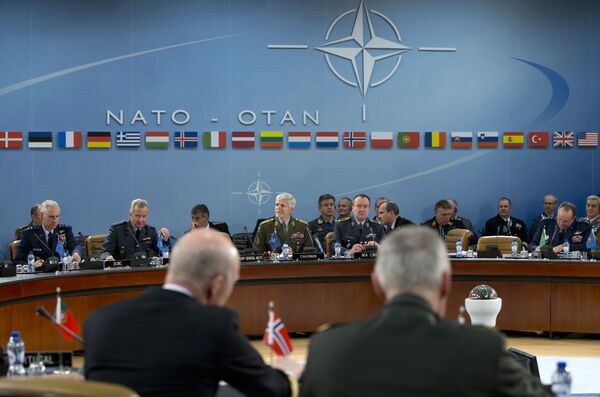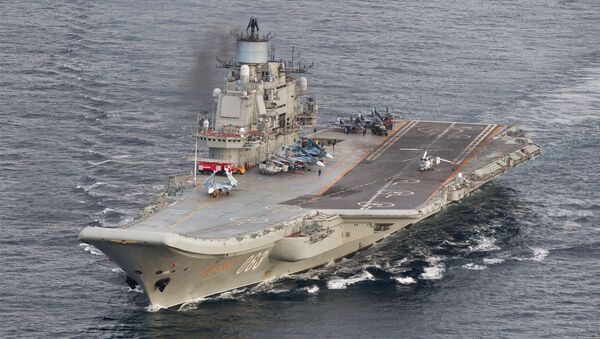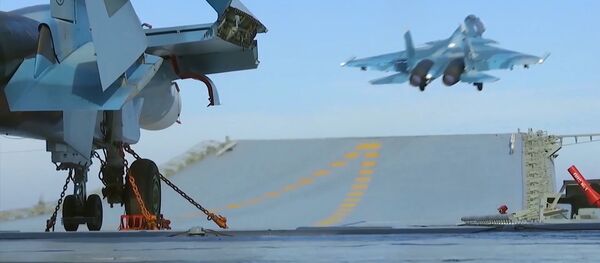"Russia's military capabilities, as well as the country's military presence have constantly increased," General Pavel said, urging to "look beyond" these developments. "Russia wants to demonstrate that it possesses military power that must be respected and that serves a foreign policy purpose – to return to the international arena."
As a result, the deployment of the aircraft carrier group led by Admiral Kuznetsov to the eastern Mediterranean should not be viewed as "a hostile intention," as General Pavel put it. It is a "display of Russia's global capacity and the means to conduct autonomous operations when Moscow sees fit," he explained.

On November 15, Admiral Kuznetsov took part in Russia's counterterrorism operation in Syria, launching massive strikes on Daesh and al-Nusra Front targets, mainly ammunition depots and facilities aimed at producing weapons, in the Syrian provinces of Idlib and Homs.
"I do not think that Russia's foreign policy at this moment aims at destroying the image of a constructive actor in the international arena that Moscow has tried to project. If Russia is interested in becoming a serious global player again, any act of aggression during this transition period would be adverse to this goal," he said.
High-ranking NATO officials have been largely critical of Russia, blaming the country for ostensibly meddling in Ukraine's internal affairs and threatening its neighbors in the Baltic. Moscow has always denied these claims, saying that the bloc's expansion to the east and its initiatives close to Russia's border are detrimental to regional and global security.



